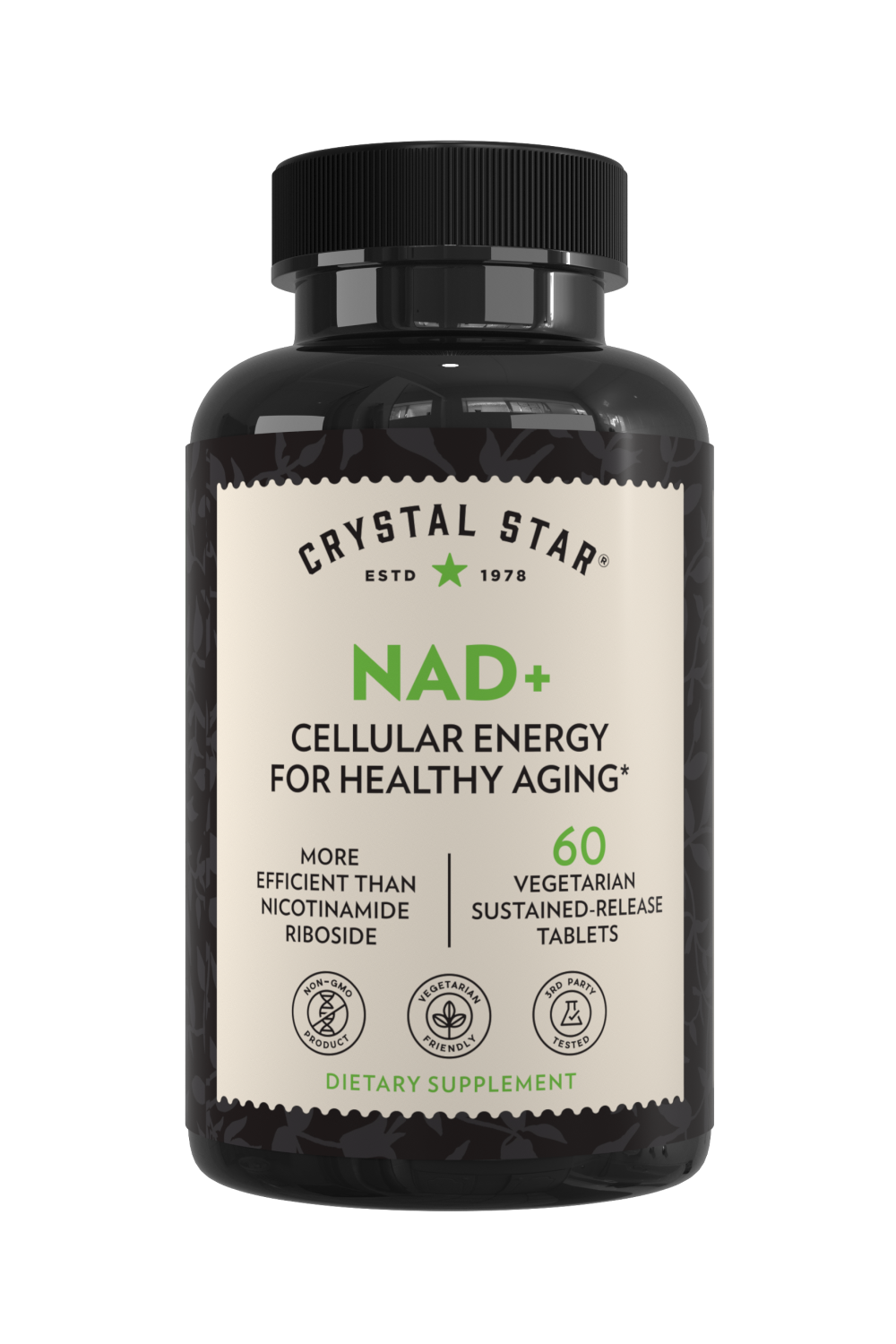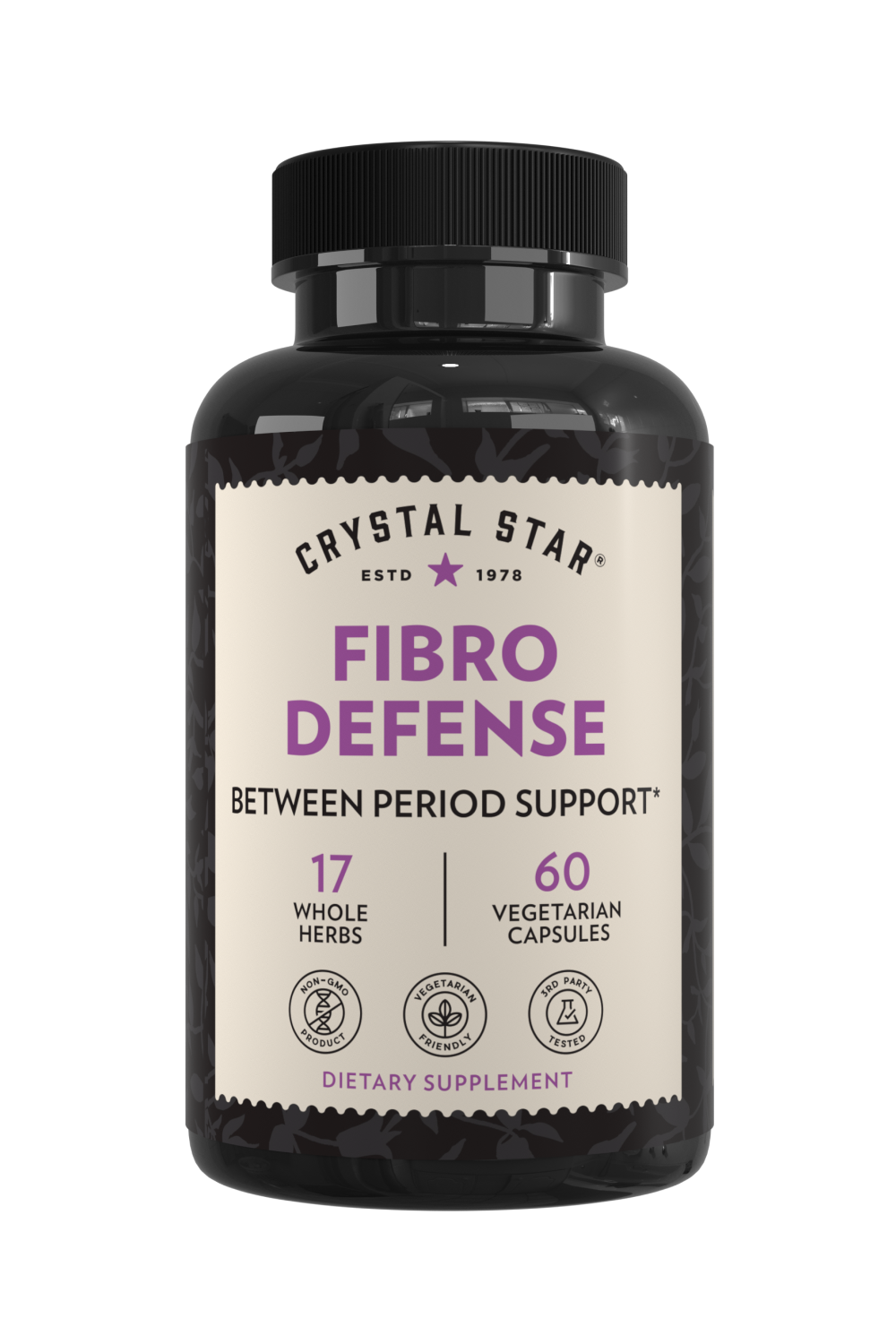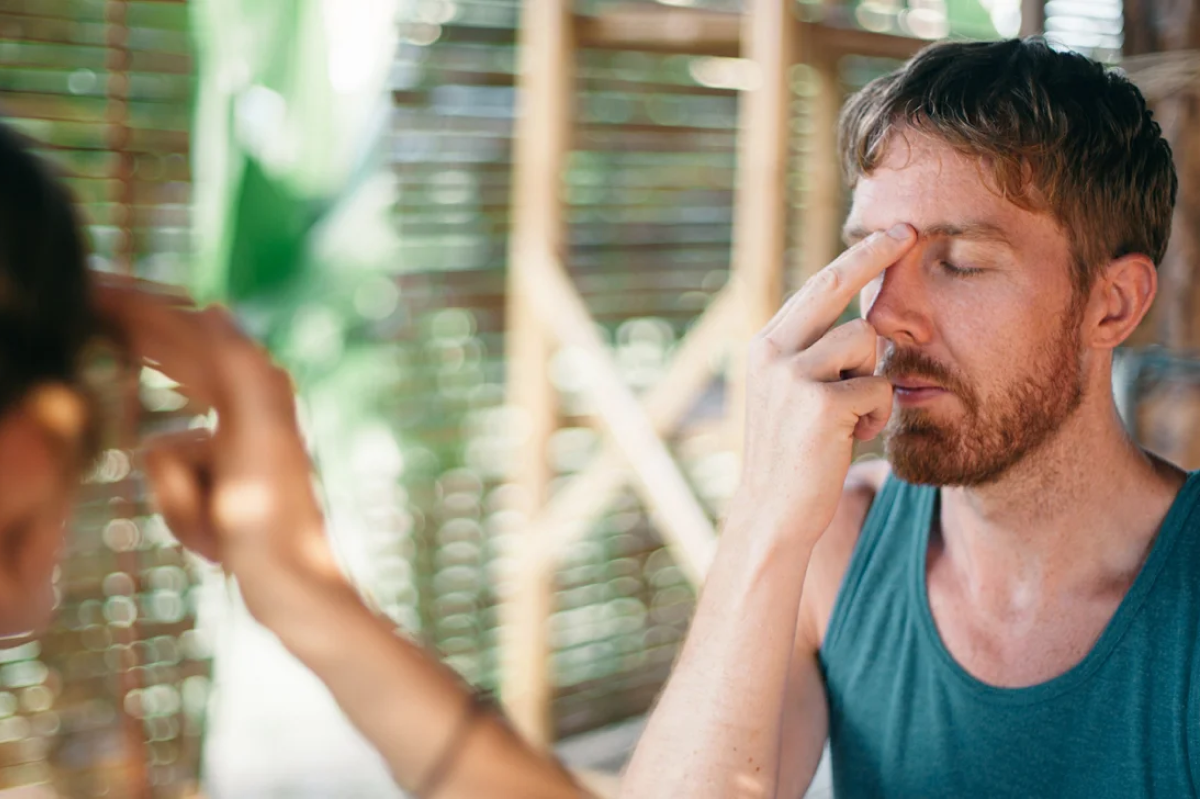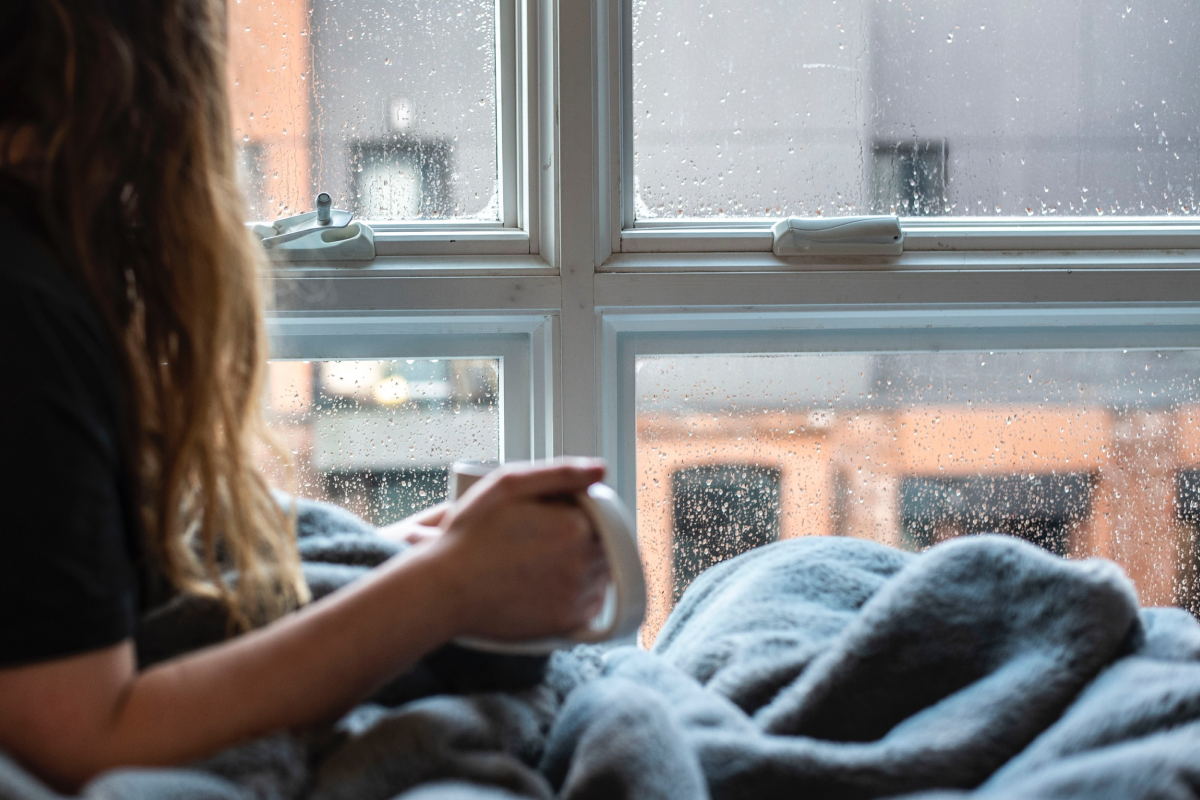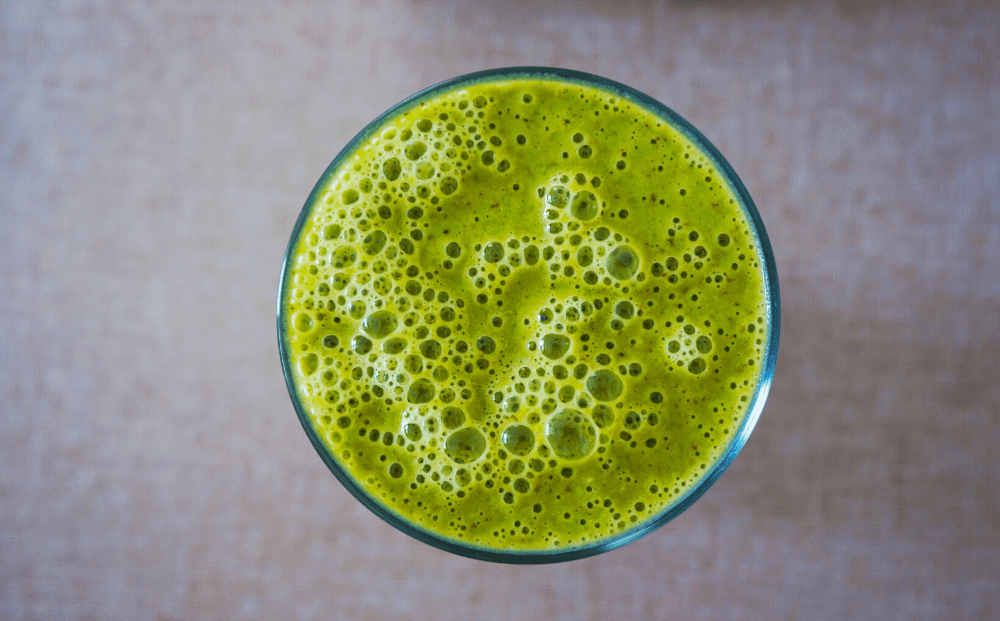
Feb 28, 2020
10 mins read
How to calm an anxious mind? Get more deep sleep.
Nothing feels better than waking up after a night of perfect sleep. That blissful, worry-free feeling the morning after deep and restful sleep is not only in your head—actually, it’s in your brain.
Researchers at UC Berkeley set about to study the link between sleep and anxiety. What they found is that getting adequate sleep—particularly, deep sleep—is associated with feeling less anxiety the following day. Their results were published in the November 2019 edition of the science journal Nature Human Behaviour.[1]
The findings are significant because they provide scientific backing to the emotional fluctuations that many of us experience with poor-quality sleep. And knowing that improved sleep quality can help manage stress and anxiety (and possibly more serious offshoots like panic attacks) may be of interest to every single person who has ever lived.
Better still, these benefits are a self-care tool available via a natural process that occurs automatically in your brain when you are deep asleep.
 Researchers found deep sleep to be most effective in reducing anxiety. Deep sleep is also known as slow-cycle sleep, or non-rapid eye movement (NREM) sleep, in contrast to rapid eye movement (REM) sleep.[3]
During REM, when dreams are most common, your eyes move rapidly and you experience the dreams you’ll be most likely to remember upon waking. When measured by EEG, your brain waves appear similar to wakefulness.
NREM sleep is the opposite. Your body slows down, lowering your heart rate, blood pressure, rate of breathing, and body temperature. The deepest phase of NREM sleep is known as stage three, N3, or slow-wave sleep. During N3, your brain waves are most synchronized and you’ll experience the highest degree of delta waves.
Delta waves play an important role in cognitive processing, the extent to which is still being studied.[4] Suppression of delta waves has been linked with “an inability to rejuvenate the body and revitalize the brain,” and unsurprisingly, poor sleep.[5]
This delta wave stage is when your body is most relaxed—and when you’re most difficult to rouse from sleep. But while your body rests, your brain is hard at work. In addition to its role in reducing anxiety, slow-wave sleep has a number of other known functions.
Deep sleep is a vital time for processing long-term memory.[6] The memories your brain encodes while awake are consolidated at night.[7]
[socialpug_tweet tweet="Sleep deprivation studies show that sleep loss increases the risk of obesity and diabetes." display_tweet=""]
Sleep deprivation studies also show that deep sleep has an important role in glucose metabolism, meaning sleep loss increases the risk of obesity and diabetes.[8] Additionally, human growth hormone (HGH) is secreted during slow-wave sleep, which helps with cell repair, especially after a workout.[9]
Researchers found deep sleep to be most effective in reducing anxiety. Deep sleep is also known as slow-cycle sleep, or non-rapid eye movement (NREM) sleep, in contrast to rapid eye movement (REM) sleep.[3]
During REM, when dreams are most common, your eyes move rapidly and you experience the dreams you’ll be most likely to remember upon waking. When measured by EEG, your brain waves appear similar to wakefulness.
NREM sleep is the opposite. Your body slows down, lowering your heart rate, blood pressure, rate of breathing, and body temperature. The deepest phase of NREM sleep is known as stage three, N3, or slow-wave sleep. During N3, your brain waves are most synchronized and you’ll experience the highest degree of delta waves.
Delta waves play an important role in cognitive processing, the extent to which is still being studied.[4] Suppression of delta waves has been linked with “an inability to rejuvenate the body and revitalize the brain,” and unsurprisingly, poor sleep.[5]
This delta wave stage is when your body is most relaxed—and when you’re most difficult to rouse from sleep. But while your body rests, your brain is hard at work. In addition to its role in reducing anxiety, slow-wave sleep has a number of other known functions.
Deep sleep is a vital time for processing long-term memory.[6] The memories your brain encodes while awake are consolidated at night.[7]
[socialpug_tweet tweet="Sleep deprivation studies show that sleep loss increases the risk of obesity and diabetes." display_tweet=""]
Sleep deprivation studies also show that deep sleep has an important role in glucose metabolism, meaning sleep loss increases the risk of obesity and diabetes.[8] Additionally, human growth hormone (HGH) is secreted during slow-wave sleep, which helps with cell repair, especially after a workout.[9]
 During the night you move through a set of repeating sleep patterns, known as sleep cycles. Each cycle consists of three stages of NREM sleep and one round of REM sleep. A sleep cycle lasts for about 90 minutes, meaning you’ll typically have between 4 and 6 sleep cycles per night.
Of the three NREM sleep stages the last, N3, gives you the deepest sleep.
When you drift off to sleep, that’s N1. You then move through the light sleep stage, N2, and finally N3. Next, you’ll move backwards from N3, back through N2 before entering the first period of REM sleep.[10]
Although the sleep cycle repeats, as the night progresses you’ll generally get less deep sleep and more REM sleep. You’ll get the majority of NREM stage 3 sleep in your first two sleep cycles, i.e. within the first three hours of falling asleep.
During the night you move through a set of repeating sleep patterns, known as sleep cycles. Each cycle consists of three stages of NREM sleep and one round of REM sleep. A sleep cycle lasts for about 90 minutes, meaning you’ll typically have between 4 and 6 sleep cycles per night.
Of the three NREM sleep stages the last, N3, gives you the deepest sleep.
When you drift off to sleep, that’s N1. You then move through the light sleep stage, N2, and finally N3. Next, you’ll move backwards from N3, back through N2 before entering the first period of REM sleep.[10]
Although the sleep cycle repeats, as the night progresses you’ll generally get less deep sleep and more REM sleep. You’ll get the majority of NREM stage 3 sleep in your first two sleep cycles, i.e. within the first three hours of falling asleep.
References: [1] https://www.nature.com/articles/s41562-019-0754-8 [2] https://news.berkeley.edu/2019/11/04/deep-sleep-can-rewire-the-anxious-brain/ [3] https://www.ncbi.nlm.nih.gov/books/NBK20359/ [4] https://www.ncbi.nlm.nih.gov/pmc/articles/PMC3851789/ [5] https://www.sciencedirect.com/topics/neuroscience/delta-wave [6] https://www.sciencedaily.com/releases/2016/04/160414214830.htm [7] https://www.ncbi.nlm.nih.gov/pmc/articles/PMC3768102/ [8] https://www.ncbi.nlm.nih.gov/pmc/articles/PMC3018785/ [9] https://www.ncbi.nlm.nih.gov/pubmed/8627466 [10] http://healthysleep.med.harvard.edu/healthy/science/what/sleep-patterns-rem-nrem [11] https://www.ncbi.nlm.nih.gov/pmc/articles/PMC3608291/ [12] https://www.ncbi.nlm.nih.gov/pmc/articles/PMC4394901/ [13] https://www.ncbi.nlm.nih.gov/pmc/articles/PMC4122768/ [14] https://onlinelibrary.wiley.com/doi/abs/10.1002/ptr.3400 [15] https://onlinelibrary.wiley.com/doi/abs/10.1111/jan.12836 [16] https://www.ninds.nih.gov/Disorders/Patient-Caregiver-Education/Understanding-sleep [17] https://www.ncbi.nlm.nih.gov/pmc/articles/PMC5143488/ [18] https://academic.oup.com/eurheartj/article/32/12/1484/502022 [19] https://www.psychologytoday.com/us/blog/sleepless-in-america/201010/the-mysterious-benefits-deep-sleep
Study finds poor sleep may worsen anxiety
The team of researchers published their results under the title “Overanxious and underslept.” The research encompassed three studies, and findings were consistent across all three.[2] The first study followed 18 young adults across two nights: one where they had a full night’s sleep, and one where they were sleepless. After each night, they watched “emotionally-stirring” video clips and completed a standard anxiety inventory. The result? A no-sleep night resulted in higher anxiety—30% higher than after sleeping well. [socialpug_tweet tweet="Deep sleep decreases anxiety overnight by reorganizing connections in the brain." display_tweet=""] According to Berkeley professor of neuroscience and psychology Matthew P. Walker, this finding is a new breakthrough. “We have identified a new function of deep sleep, one that decreases anxiety overnight by reorganizing connections in the brain,” he said in a press release.How does sleep affect brain function?
Why does sleeplessness lead to higher anxiety? Researchers found answers in the medial prefrontal cortex of the brain (located in the frontal lobe), which doesn’t function at full capacity after a sleepless night. This region typically helps us regulate our emotions, helping to subdue feelings of anxiety. As described by Walker, “Without sleep, it’s almost as if the brain is too heavy on the emotional accelerator pedal, without enough brake.” A second study replicated the results in a larger group of 30 participants and the third, online study of 280 participants of all ages also backed up the findings of the initial research. [socialpug_tweet tweet="Researchers found that they could use the amount of sleep a participant got to accurately predict how anxious they would feel the next day. " display_tweet=""] From this, researchers found that they could use the amount of sleep a participant got to accurately predict how anxious they would feel the next day. Missing out on sleep led to increased anxiety, while sleeping well was connected to reduced anxiety. For those who slept well, anxiety reduction was especially pronounced in those who spent more time in “deep sleep.” Why is everyone talking about this sleep research? Because it suggests sleep as a treatment model for those with anxiety. According to study lead author Eti Ben Simon, a postdoctoral fellow in the Center for Human Sleep Science at UC Berkeley, “People with anxiety disorders routinely report having disturbed sleep, but rarely is sleep improvement considered as a clinical recommendation for lowering anxiety,” Simon said. In other words, deep sleep may be a cause of relaxed mood, rather than an effect.What is deep sleep?
 Researchers found deep sleep to be most effective in reducing anxiety. Deep sleep is also known as slow-cycle sleep, or non-rapid eye movement (NREM) sleep, in contrast to rapid eye movement (REM) sleep.[3]
During REM, when dreams are most common, your eyes move rapidly and you experience the dreams you’ll be most likely to remember upon waking. When measured by EEG, your brain waves appear similar to wakefulness.
NREM sleep is the opposite. Your body slows down, lowering your heart rate, blood pressure, rate of breathing, and body temperature. The deepest phase of NREM sleep is known as stage three, N3, or slow-wave sleep. During N3, your brain waves are most synchronized and you’ll experience the highest degree of delta waves.
Delta waves play an important role in cognitive processing, the extent to which is still being studied.[4] Suppression of delta waves has been linked with “an inability to rejuvenate the body and revitalize the brain,” and unsurprisingly, poor sleep.[5]
This delta wave stage is when your body is most relaxed—and when you’re most difficult to rouse from sleep. But while your body rests, your brain is hard at work. In addition to its role in reducing anxiety, slow-wave sleep has a number of other known functions.
Deep sleep is a vital time for processing long-term memory.[6] The memories your brain encodes while awake are consolidated at night.[7]
[socialpug_tweet tweet="Sleep deprivation studies show that sleep loss increases the risk of obesity and diabetes." display_tweet=""]
Sleep deprivation studies also show that deep sleep has an important role in glucose metabolism, meaning sleep loss increases the risk of obesity and diabetes.[8] Additionally, human growth hormone (HGH) is secreted during slow-wave sleep, which helps with cell repair, especially after a workout.[9]
Researchers found deep sleep to be most effective in reducing anxiety. Deep sleep is also known as slow-cycle sleep, or non-rapid eye movement (NREM) sleep, in contrast to rapid eye movement (REM) sleep.[3]
During REM, when dreams are most common, your eyes move rapidly and you experience the dreams you’ll be most likely to remember upon waking. When measured by EEG, your brain waves appear similar to wakefulness.
NREM sleep is the opposite. Your body slows down, lowering your heart rate, blood pressure, rate of breathing, and body temperature. The deepest phase of NREM sleep is known as stage three, N3, or slow-wave sleep. During N3, your brain waves are most synchronized and you’ll experience the highest degree of delta waves.
Delta waves play an important role in cognitive processing, the extent to which is still being studied.[4] Suppression of delta waves has been linked with “an inability to rejuvenate the body and revitalize the brain,” and unsurprisingly, poor sleep.[5]
This delta wave stage is when your body is most relaxed—and when you’re most difficult to rouse from sleep. But while your body rests, your brain is hard at work. In addition to its role in reducing anxiety, slow-wave sleep has a number of other known functions.
Deep sleep is a vital time for processing long-term memory.[6] The memories your brain encodes while awake are consolidated at night.[7]
[socialpug_tweet tweet="Sleep deprivation studies show that sleep loss increases the risk of obesity and diabetes." display_tweet=""]
Sleep deprivation studies also show that deep sleep has an important role in glucose metabolism, meaning sleep loss increases the risk of obesity and diabetes.[8] Additionally, human growth hormone (HGH) is secreted during slow-wave sleep, which helps with cell repair, especially after a workout.[9]
How do sleep cycles work?
 During the night you move through a set of repeating sleep patterns, known as sleep cycles. Each cycle consists of three stages of NREM sleep and one round of REM sleep. A sleep cycle lasts for about 90 minutes, meaning you’ll typically have between 4 and 6 sleep cycles per night.
Of the three NREM sleep stages the last, N3, gives you the deepest sleep.
When you drift off to sleep, that’s N1. You then move through the light sleep stage, N2, and finally N3. Next, you’ll move backwards from N3, back through N2 before entering the first period of REM sleep.[10]
Although the sleep cycle repeats, as the night progresses you’ll generally get less deep sleep and more REM sleep. You’ll get the majority of NREM stage 3 sleep in your first two sleep cycles, i.e. within the first three hours of falling asleep.
During the night you move through a set of repeating sleep patterns, known as sleep cycles. Each cycle consists of three stages of NREM sleep and one round of REM sleep. A sleep cycle lasts for about 90 minutes, meaning you’ll typically have between 4 and 6 sleep cycles per night.
Of the three NREM sleep stages the last, N3, gives you the deepest sleep.
When you drift off to sleep, that’s N1. You then move through the light sleep stage, N2, and finally N3. Next, you’ll move backwards from N3, back through N2 before entering the first period of REM sleep.[10]
Although the sleep cycle repeats, as the night progresses you’ll generally get less deep sleep and more REM sleep. You’ll get the majority of NREM stage 3 sleep in your first two sleep cycles, i.e. within the first three hours of falling asleep.
What are some effective herbal sleep aids?
Herbs can be powerful sleep aids. In a 2013 study, the effects of a polyherbal blend containing both passionflower and valerian root were comparable to Ambien.[11] Valerian is a flowering plant native to Europe and Asia. Its root can be found in tea and supplement form and may improve sleep quality with few-to-no side effects.[12] Valerian works in the body by increasing levels of the neurotransmitter called gamma-aminobutyric acid (GABA). GABA is known to increase sleepiness and reduce anxiety.[13] (For more on GABA, check out Get friendly with GABA, the brain molecule that beats anxiety.) [socialpug_tweet tweet="Passionflower was found to improve sleep quality in a double-blind, placebo-controlled study from 2011." display_tweet=""] Passionflower is another effective herb that can be found in tea and supplement form. Native to the southern United States, as well as Central and South America, passionflower was found to improve sleep quality in a double-blind, placebo-controlled study from 2011.[14] Chamomile tea has been known as a natural sleep aid for years. In one study from 2015, it was found to improve sleep quality and depression symptoms in postnatal women.[15] There are many more helpful herbal ingredients to look for when considering a natural sleep aid, including American skullcap leaf, California poppy, and kava kava root. Increasingly, these traditional herbs are finding backing from modern science as being effective, side effect–free aids. If you’re ready to explore herbs for sleep for yourself, working with an herbalist can be very helpful to find the right herb or blend for your body type and specific situation.The bottom line on deep sleep and anxiety
The “overanxious and underslept” findings are a valuable addition to what we already know about sleep: it’s really good for you. Getting a full night’s sleep feels refreshing and rejuvenating, and for good reason: it relaxes the body and helps reorganize the mind. Moving naturally through the stages of sleep each night is necessary for our wellbeing. Sleep serves us well: it’s vital for brain function, it allows neurons to communicate with each other, and it provides time for your brain to clear itself of toxins.[16] Getting adequate sleep helps your immune system function and improves your heart health, too.[17] [18] Deep sleep is also what we need to feel well rested in the morning, and it may also help us feel less stressed. Yet surprisingly, science still regards the full biological purpose of sleep to be a mystery, with the full benefits of deep sleep as most mysterious of all.[19] The mystery surrounding deep sleep makes the discovery of its link to anxiety reduction all the more exciting. If you’re feeling stressed out, your sleep may be the first thing to suffer. Instead of managing your stress to get better sleep, it may be helpful to stage a sleep intervention in order to reduce your stress. The science of sleep may be mysterious, but there are proven techniques that can improve sleep quality. If herbal remedies and basic sleep hygiene (regular wakeup times, cool and dark bedrooms, daytime exercise, and limits on nighttime screen time) don’t help, contact a healthcare provider. They can look for underlying health conditions or medications that may be contributing to your sleep woes and provide strategies to manage them.References: [1] https://www.nature.com/articles/s41562-019-0754-8 [2] https://news.berkeley.edu/2019/11/04/deep-sleep-can-rewire-the-anxious-brain/ [3] https://www.ncbi.nlm.nih.gov/books/NBK20359/ [4] https://www.ncbi.nlm.nih.gov/pmc/articles/PMC3851789/ [5] https://www.sciencedirect.com/topics/neuroscience/delta-wave [6] https://www.sciencedaily.com/releases/2016/04/160414214830.htm [7] https://www.ncbi.nlm.nih.gov/pmc/articles/PMC3768102/ [8] https://www.ncbi.nlm.nih.gov/pmc/articles/PMC3018785/ [9] https://www.ncbi.nlm.nih.gov/pubmed/8627466 [10] http://healthysleep.med.harvard.edu/healthy/science/what/sleep-patterns-rem-nrem [11] https://www.ncbi.nlm.nih.gov/pmc/articles/PMC3608291/ [12] https://www.ncbi.nlm.nih.gov/pmc/articles/PMC4394901/ [13] https://www.ncbi.nlm.nih.gov/pmc/articles/PMC4122768/ [14] https://onlinelibrary.wiley.com/doi/abs/10.1002/ptr.3400 [15] https://onlinelibrary.wiley.com/doi/abs/10.1111/jan.12836 [16] https://www.ninds.nih.gov/Disorders/Patient-Caregiver-Education/Understanding-sleep [17] https://www.ncbi.nlm.nih.gov/pmc/articles/PMC5143488/ [18] https://academic.oup.com/eurheartj/article/32/12/1484/502022 [19] https://www.psychologytoday.com/us/blog/sleepless-in-america/201010/the-mysterious-benefits-deep-sleep

